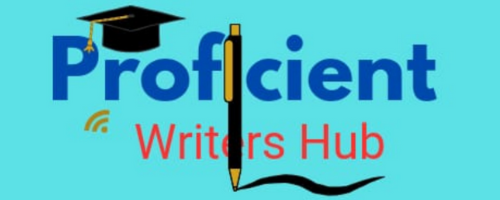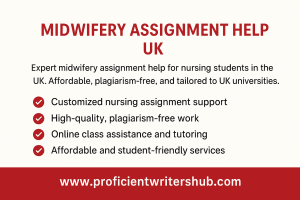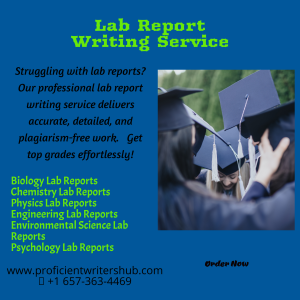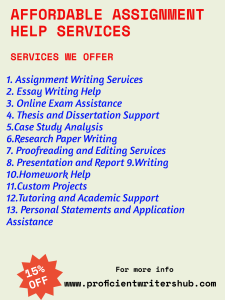University of Chicago Assignment Help Services: Stress-Free Learning in Chicago
University of Chicago Assignment Help Services: Your Complete Guide to Stress-Free Learning in Chicago

Introduction
The University of Chicago is known across the globe for its intellectual rigor, demanding coursework, and groundbreaking research. Ranked among the top universities worldwide, it has produced Nobel Prize winners, influential policymakers, and thought leaders. But behind the prestige lies an undeniable reality: students often face overwhelming academic stress.
Whether it’s preparing a 20-page research paper for Political Science, analyzing data in a Business Analytics course, or handling case studies in Sociology, University of Chicago students often find themselves juggling heavy workloads. Add part-time jobs, internships, and personal commitments to the equation, and it’s no wonder students feel exhausted.
That’s where assignment help services in Chicago come in. At Proficient Writers Hub, we specialize in offering personalized, plagiarism-free, and affordable assignment support for UChicago students—and for students in other leading Chicago institutions like Northwestern, Loyola, DePaul, UIC, and Illinois Tech.
This guide explores why students need assignment help, what services are available, common academic challenges, and how we provide effective solutions to assignment stress and online learning struggles.
Why University of Chicago Students Seek Assignment Help
1. Rigorous Academic Environment
The University of Chicago is often described as one of the toughest schools in the U.S. Its famous “life of the mind” culture encourages debate, research, and writing at an advanced level. For many, this environment is exciting—but it also creates immense academic pressure.
2. Time Management Struggles
Students at UChicago often balance:
-
Full-time coursework.
-
Part-time jobs or internships.
-
Extracurricular clubs and leadership activities.
-
Personal and social responsibilities.
Even with the best time-management apps, deadlines sometimes pile up, making assignment help a lifeline.
3. Complex Coursework
Assignments in Chicago universities require critical analysis and advanced research. Examples include:
-
Creating SQL databases and ER diagrams.
-
Writing reflective essays on novels like The Circle.
-
Developing data visualizations in Tableau.
-
Handling advanced accounting and business analysis.
-
Writing lab reports in science or healthcare management essays.
Not every student feels equally confident across such diverse fields.
4. International Student Challenges
Chicago attracts thousands of international students. Many face additional struggles with language barriers, cultural adjustment, and adapting to American academic writing standards.

Benefits of Professional Assignment Help in Chicago
When you use a service like Proficient Writers Hub, you don’t just buy an essay—you gain:
-
Improved grades: Assignments written by subject experts who understand UChicago’s academic rigor.
-
Time savings: More space for internships, job hunting, or personal time.
-
Expert guidance: Learn structure, formatting, and academic tone from well-written examples.
-
Plagiarism-free work: Every paper is original and checked with advanced tools.
-
Confidential support: Your privacy is always protected.
-
24/7 availability: We know Chicago students burn the midnight oil—so do we.
Proficient Writers Hub – Your Trusted Academic Partner
At Proficient Writers Hub, we pride ourselves on being more than a writing service. We’re academic partners who help you succeed.
Why Students Choose Us
-
Professional writers with advanced degrees.
-
Affordable, student-friendly pricing.
-
100% confidentiality.
-
On-time delivery, even under tight deadlines.
-
Coverage of all subjects taught at University of Chicago.
Popular Subjects Covered:
-
Humanities: History, Philosophy, Political Science.
-
Social Sciences: Sociology, Economics, Psychology.
-
STEM: Computer Science, Mathematics, Data Analytics, Engineering.
-
Business & Law: Finance, Accounting, MBA coursework, Legal Studies.
-
Nursing & Medicine: Case studies, healthcare management essays, lab reports.
Other Top Chicago Universities We Serve
We don’t stop at University of Chicago with assignment help services. Our services extend to students across the Chicagoland area:
-
Northwestern University
-
Loyola University Chicago
-
DePaul University
-
Illinois Institute of Technology (IIT)
-
University of Illinois Chicago (UIC)
So whether you’re in Hyde Park, Evanston, or downtown Chicago, Proficient Writers Hub has you covered.
Types of Assignment Help Services Offered
Chicago students request a wide range of services. We cover them all:
-
Essay Writing – persuasive, argumentative, and research essays.
-
Research Papers – literature reviews, quantitative/qualitative analysis.
-
Dissertations & Theses – full support from proposal to final draft.
-
Homework Help – daily or weekly assignments.
-
Case Studies & Business Reports – data-driven projects and market analyses.
-
Presentations & Group Projects – PowerPoints, infographics, professional reports.
-
Online Class Help – attendance, quizzes, and participation support.
-
Editing & Proofreading – polish your own writing to perfection.

Top Assignment Help Website for Students Worldwide
Real Student Questions in Chicago – What They Struggle With
From browsing University of Chicago-related questions on Studypool, here are examples of what students often need help with:
-
Data Analytics & Database Essentials – “How do I design a relational schema for my assignment?”
-
Environmental Science – “Summarize climate change case studies and link them to policy responses.”
-
Business Accounting – “Prepare a capitalization table for a startup.”
-
SQL & ER Diagrams – “Write insert/update/delete queries for a relational database.”
-
Statistics – “Interpret regression results in a dataset.”
-
Literature & Writing – “Analyze The Circle by Dave Eggers.”
-
Healthcare Leadership – “Evaluate leadership styles in healthcare management.”
-
English Coursework – “Write a reflective book review for English 161.”
➡️ These real-life struggles highlight why Chicago students often seek assignment help services.
How Proficient Writers Hub Solves These Challenges
-
Data Analytics / SQL / Tableau → Our computer science and IT experts can design ER diagrams, run SQL queries, and visualize data in Tableau.
-
Business & Accounting → Our MBA writers create accurate financial reports, models, and case studies.
-
Environmental Science → Our researchers link theory to real-world case studies with strong citations.
-
Statistics & Research → We provide step-by-step analysis, interpretation, and presentation of statistical findings.
-
Literature & Writing → Our humanities experts craft insightful essays and book reviews with proper citations.
-
Healthcare Leadership → Nursing and public health specialists provide in-depth research and case-based analysis.
Solutions to Assignment Stress and Online Classes
Chicago students don’t just face assignments—they also struggle with online learning platforms like Canvas, Blackboard, and Zoom-based classes. Common issues include:
-
Keeping up with multiple deadlines.
-
Anxiety during online exams.
-
Difficulty in group projects when working remotely.
-
Burnout from screen time and lack of motivation.
How We Help
-
Online Class Support – We can manage participation, quizzes, and weekly assignments on your behalf.
-
Study Resources – We create personalized notes, summaries, and sample solutions.
-
Stress Reduction – By delegating complex assignments, students free up time for rest, internships, or self-care.
-
Academic Coaching – Beyond writing, we guide students on structuring their study plans.
How It Works – Simple 3-Step Process
-
Submit your requirements → Fill out the order form with assignment details.
-
Get matched with an expert → We connect you to a writer who specializes in your field.
-
Receive your paper → Get a polished, plagiarism-free assignment delivered on time.
Why Chicago Students Prefer Proficient Writers Hub
-
Localized understanding of Chicago universities’ grading standards.
-
Affordable payment plans for college students.
-
Thousands of successful papers completed.
-
Real testimonials and positive reviews from students just like you.
FAQs
1. Is assignment help legal for University of Chicago students?
Yes—our work is intended as a study guide. You’re free to learn from it, cite it, or use it to improve your own assignments.
2. Can you meet urgent deadlines?
Absolutely—we deliver even under 12 hours when needed.
3. Do you guarantee originality?
Yes. Every paper is checked with plagiarism software.
4. What subjects do you cover?
From humanities to STEM, nursing to law—our experts cover all major fields.
5. Is my data safe?
Completely. We guarantee full confidentiality.
Call to Action – Start Today!
University of Chicago students work hard to succeed in one of the most competitive academic environments in the world. But success doesn’t have to come at the cost of stress, burnout, or sleepless nights.
At Proficient Writers Hub, we offer assignment help, online class support, essay writing, and research guidance that empower you to thrive academically—without losing balance in life.
👉 Don’t let assignments overwhelm you. Contact us today and take your first step toward stress-free learning in Chicago.
Achieving Balance: Study, Work, and Life as a University of Chicago Student
Life at the University of Chicago is not just about academics. The city itself is full of opportunities—internships, cultural events, networking activities, and community service. Yet, balancing all of these with demanding coursework often feels overwhelming. Many students report experiencing stress, burnout, and sleep deprivation, especially during finals.
The Pressure Cooker Effect
UChicago is known for its “life of the mind,” but in practice, students juggle:
-
15–18 credit hours per quarter.
-
Student organizations or leadership roles.
-
Research assistantships or teaching assistant jobs.
-
Internships with Chicago’s corporate, legal, or medical sectors.
-
Part-time jobs to cover expenses.
This combination creates what’s sometimes called the “pressure cooker effect.” Students feel trapped between excelling academically, maintaining their GPA, and not falling behind in personal or career growth.
The Role of Assignment Help in Reducing Burnout
When coursework feels relentless, outsourcing some assignments to professionals provides relief. At Proficient Writers Hub, our role is not to “replace” learning but to:
-
Allow students to prioritize health without risking grades.
-
Help them meet deadlines while still participating in internships or extracurriculars.
-
Provide model papers that act as learning guides—so students can focus on core concepts rather than formatting or citation headaches.
Practical Tips for Stress-Free Academic Life
While assignment help provides relief, students can also use self-care strategies to manage academic stress better. Here are research-backed productivity and wellness hacks:
1. Time-Blocking
Instead of multitasking, UChicago students can adopt a time-blocking method—dedicating specific hours to specific tasks. For example:
-
9–11 a.m.: Focus on reading for Humanities.
-
1–3 p.m.: Work on lab reports.
-
5–6 p.m.: Gym or wellness break.
-
Evening: Review notes and light revisions.
Time-blocking improves efficiency and reduces mental fatigue from constant task switching.
2. Pomodoro Technique
Breaking study sessions into 25-minute focused work intervals with 5-minute breaks helps maintain focus. Many students find this technique especially effective during long essay-writing sessions.
3. Campus Resources for Mental Health
The University of Chicago offers counseling services, wellness programs, and mindfulness workshops. Students can combine these with external academic support to maintain balance.
4. Smart Use of Technology
Apps like Notion, Trello, and Todoist help organize tasks and deadlines. Combined with professional assignment help, these tools create a seamless academic workflow.
Chicago Resources Every Student Should Know
One of the advantages of studying in Chicago is access to world-class facilities, research hubs, and professional networks. Yet, even with these resources, students often turn to Proficient Writers Hub because internal support isn’t always enough.
1. University Writing Center
UChicago has a writing center that helps students brainstorm and refine ideas. But the center cannot complete assignments or work on multiple papers simultaneously. That’s where external assignment support bridges the gap.
2. Regenstein Library & Mansueto Library
These libraries offer unmatched academic resources. Still, students may struggle with data analysis, structuring long papers, or applying APA/MLA/Chicago style correctly. Proficient Writers Hub assists in translating research into polished papers.
3. Career Advancement Center
This office prepares students for internships and careers. However, students often feel torn between working on resumes, attending career fairs, and meeting assignment deadlines. With help from Proficient Writers Hub, they can free time to focus on career development.
4. Online Platforms & Learning Management Systems
Chicago universities use Canvas, Blackboard, and sometimes Brightspace to host online courses. While convenient, these platforms come with constant quizzes, weekly discussion posts, and participation requirements. Many students feel drained keeping up. Our online class support service helps manage these obligations.
How Proficient Writers Hub Fits into the Bigger Picture
It’s important to highlight that using assignment help doesn’t mean students aren’t capable—it means they are learning to manage priorities strategically.
Here’s how we complement existing student support in Chicago:
-
Efficiency: We save time when multiple assignments are due at once.
-
Expertise: We provide access to professionals in areas where students might lack confidence.
-
Confidence boost: By reviewing high-quality examples, students learn better writing techniques.
-
Flexibility: Students can focus on internships, jobs, or personal time without falling behind academically.
Testimonials: Stories of Chicago Students Who Found Balance
Case 1: Emily, Economics Major at University of Chicago| Assignment Help
Emily worked two part-time jobs while studying Economics. When she faced three overlapping research paper deadlines, she turned to Proficient Writers Hub. The support allowed her to complete her internship applications on time—and she secured a summer role at a major consulting firm.
Case 2: Daniel, Nursing Student at Loyola
Between clinical rotations and exams, Daniel couldn’t keep up with weekly case study assignments. With our help, he managed to balance practical training with coursework, avoiding burnout.
Case 3: Priya, International Student at UIC
English wasn’t Priya’s first language, and she struggled with APA formatting. Our editing team not only fixed grammar and citations but also gave her annotated feedback, improving her writing long-term.
Long-Term Skills Students Gain Through Assignment Help
Critics often assume assignment help is a “shortcut.” In reality, students often gain lasting academic skills by reviewing well-prepared work:
-
Research Skills: Understanding how to structure literature reviews.
-
Analytical Writing: Learning how to build arguments logically.
-
Data Presentation: Seeing how professionals handle charts, graphs, and tables.
-
Citation Mastery: Practicing consistent use of APA, MLA, or Chicago style.
Far from encouraging dependency, assignment help can build stronger independent learners.
Final Thoughts
Being a University of Chicago student is an incredible honor—but also a huge challenge. Students are not just competing with peers locally, but with some of the brightest minds worldwide. In such an environment, assignment help services in Chicago are not a sign of weakness but a smart strategy for success.
At Proficient Writers Hub, we combine professional expertise, affordability, and a deep understanding of Chicago’s academic culture to support students in their journey.
If you’re feeling stressed, overwhelmed, or stuck on assignments, remember: you don’t have to face it alone. We’re here to help you succeed—one assignment at a time.
Need assignment help? Our writers will offer you original work free from plagiarism. We follow the assignment instructions to the letter and always deliver on time. Be assured of a quality paper that will raise your grade. Order now and Get a 15% Discount! Use Coupon Code "Newclient"








 Introduction
Introduction

 Online Classes Help Website: Student Support
Online Classes Help Website: Student Support




 Here’s what you get when you work with us:
Here’s what you get when you work with us: